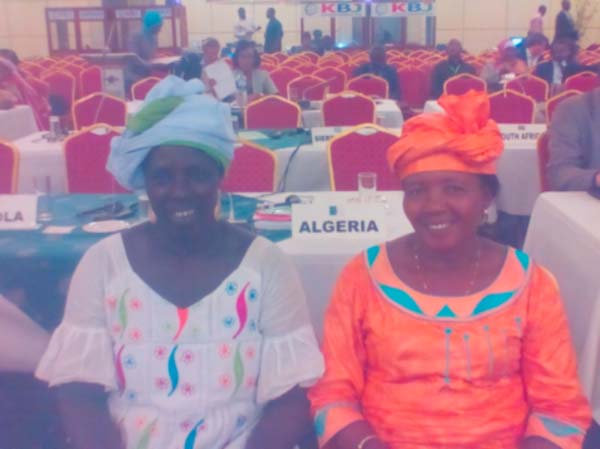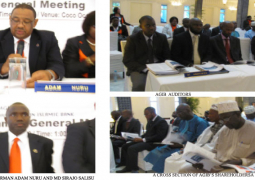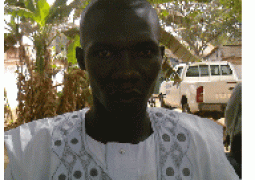
The
African Commission on Human and Peoples’ Rights yesterday organised a panel
discussion on the constraints to access water and land for rural women in Africa,
including natural resource management.
The
panel discussion was attended by women activists from all over Africa, and
marked the AU celebration of the Year of Women’s Rights.
Held
at the Kairaba Beach Hotel, the panel discussion was organised by the Working
Group on Economic, Social and Cultural Rights, which was the committee set up
by the African Commission on Human and Peoples’ Rights.
Fatou
Samba-Njie from The Gambia, representing the National Women’s Farmers
Association (NAWFA), speaking at the forum, said her organisation launched a
campaign in collaboration with the Office of the Vice President for women
farmers to at least get a hectare of land to be able to cultivate their crops.
She
said the Women’s Act is also a legal document that guides rural women to gain
access to land.
“In
many parts of the country, women’s rights to land and property are a very
sensitive issue. The unequal right to inheritance is still lacking in the rural
areas based on gender discrimination in land reform matters, which often serves
as a barrier to women’s equality,” she said.
She
added that access to water is still a major constraint for rural women.
However,
she went on, some government project interventions are really supporting some
women garden groups, which is a great achievement.
“We
have partnered with Actionaid and FLAG, which is a project launched on the
campaign on women’s access to land and finance, targeting vulnerable women’s
groups in the Central River Region (CRR).”
Victoria
Serwaah Kankam from the Initiative for Gender Equality and Development Africa
(IGED), an NGO based in Ghana, speaking at the forum, said in urban and rural
communities across Africa, women are struggling to own, access and control
property due to gender discrimination.
Women produce up to 80 per cent of the
agriculturally-based food produce, yet across Africa they own less than 3 per
cent of the land, she added.
She
noted that in marriage and family relations, women’s right to property is often
subject to the authority of the husband, father or son.
Thus,
this situation both reflects and deepens gender inequality and leaves women far
more vulnerable, as the reality severely affects women’s abilities to live
meaningful lives along with their families and communities, especially when their
lives were affected by war, disaster and lack of economic opportunities.
She
said IGED Africa has been engaging in intensive awareness raising and capacity
building on the subject, among women and girls, on the Maputo Protocol with
special focus on Article 21, at the community and national levels in Ghana.
“We
build the capacity of state and non-state actors, including the media, women
and gender agencies,” she said.




